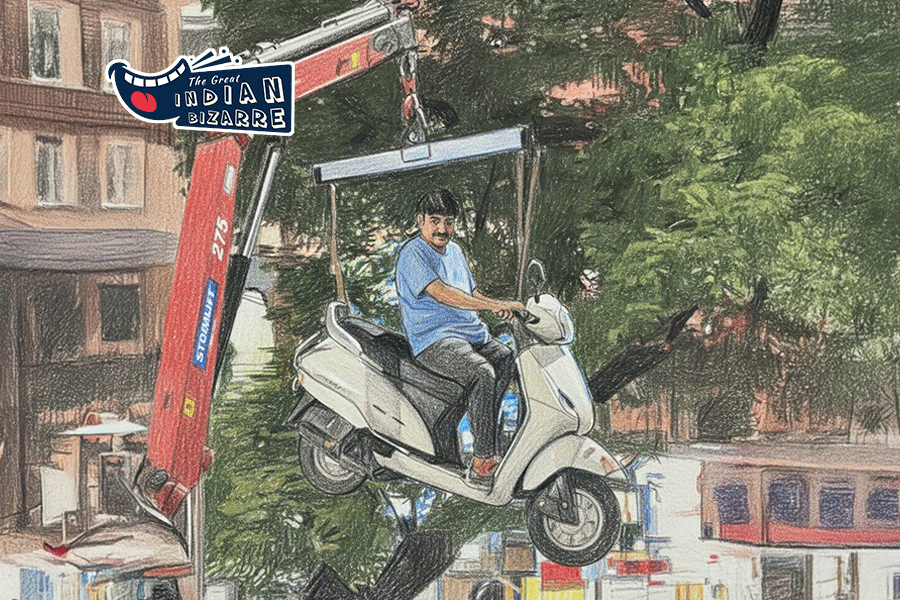|
|
Compudium. One of the many amazing inventions of Professor Trilokeswar Shonku, although to set this machine up he needs the help of two German scientists, a laboratory in Munich, and funding from a psychic research institute in the same city. Perfectly credible, yet magically devoid of red tape, just the right practical circumstances are laid out for the production of a machine that will not only allow you to speak to the dead — Shonku and his friends question Hitler, Siraj-ud-Daulah and Shakespeare — but also, when developed further, allow you to see them. The most determined sceptics among the scientists are finally convinced — or, rather, terrified into conviction — with the appearance of a pterodactyl, screaming and whirling about the room.
Is it the deadpan manner, is it the calm assumption of access to the unreachable limits of the possible, is it the elation of fantastic imaginings — what is it that is funny? In his blend of science fiction and pure fantasy, Satyajit Ray never lets go of the everyday, the familiar, that runs like prosaic, and therefore irresistibly funny, base notes throughout Shonku’s splendid adventures. For whether in the laboratory or in the depths of forested Congo or Brazil, under the sea or among deserts of snow and sand, Shonku is always in the middle of an adventure. As in all solid comedy, there is usually a moral tale running alongside — aggressive greed and ambition defeated by good old courage, innocence, resourcefulness, and the sustaining power of Shonku’s inventions.
Each of these, like Compudium — a portmanteau word from ‘computerized medium’ — has a name that combines wit with a kind of mathematical delight. The Miracurol tablet cures all, the Annihilene pistol makes the target disappear, the Botica Indica pill allows you to go without food, the Remembrain drug recalls lost memory: the list is endless. And the most incredibly named of all is the robot, Bidhusekhar, who suddenly grows a mind.
Honoured throughout the world, Shonku is happiest in his laboratory in Giridih. But his cat, Newton, may accompany him to outer space, and his man, Prahlad, may save him from creatures there. But it is the abrasive presence and unexpected adventurousness of his neighbour, Abinashbabu, who is dismissive of Shonku’s fame and of science, that are sources of constant comedy. Ray loves this type. There is also Nakurbabu, whose extraordinary powers of visualization not only save Shonku from sinister plots but also allow him to ‘see’ a non-existent anaconda in the Brazilian forest. He calls Shonku Tilubabu.
The comedy springs from the incongruous mix of science fiction, fantasy and the provoking ordinariness of Bengali life. Each element is subtly — and funnily — out of place. The mix of science, facts and laughter recurs in Bengali literature; Premendra Mitra’s Ghanada stories are an example. Much of Ray’s humour is woven into the language and wit, and the presence of character types. Part of the delighted affection with which we regard Shonku springs from the collective cultural memory of eccentric uncles and grandfathers busy with ‘inventions’ — often with catastrophic results.
Shonku, comically confident, disdainful of money, ready for adventure and ever expecting success, cannot age. His inventor cannot either.












